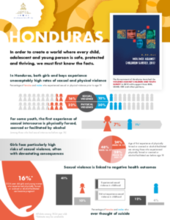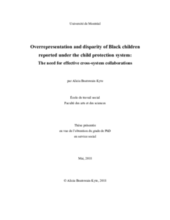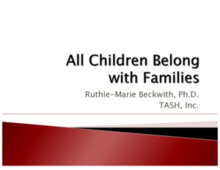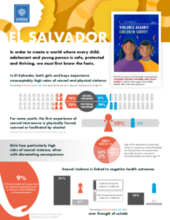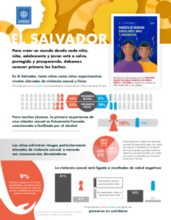This page contains documents and other resources related to children's care in the Americas. Browse resources by region, country, or category.
Displaying 611 - 620 of 1438
This fact sheet presents an overview of the data found in Honduras’s Violence Against Children Survey.
This three-paper dissertation examines the overrepresentation of Black children reported to child protection services in Canada.
This study explores understandings of children and childhood among 21 social workers from five child protection services in Chile.
This presentation was given at Disability Rights International and the European Network on Independent Living's webinar on the right of all children to a family by Dr. Ruthie-Marie Beckwith.
This fact sheet presents an overview of the data found in El Salvador’s Violence Against Children Survey.
Esta página de datos presente un resumen de los datos encontrados en la Encuesta de Violencia Contra los Niños, Niñas y Adolescentes de El Salvador
In this cross-sectional study, the authors assessed the mental health of children held at a US immigration detention center over two months in mid-2018.
This chapter from the book Re-Visioning Public Health Approaches for Protecting Children critiques historical and contemporary child protection approaches that are viewed as replicating the colonialist practices of child removal and destruction of families/parenting and communities. Using Australia and Canada as examples, it focuses upon three different sources of the disadvantage and distress that Indigenous communities typically experience: the impacts of Colonisation; intergenerational trauma; and the ongoing social, economic, legal and political inequalities that stem from deep-seated inequity.
The purpose of this chapter from the book Re-Visioning Public Health Approaches for Protecting Children is to document and discuss the conceptual, methodological, ethical, and infrastructure related issues that arise in supporting the research needs of child welfare organizations in Canada in order to implement evidence-based practice models, while providing examples of the usefulness and challenges of using administrative child welfare data to inform policies and programs.
This article examines the situation of minors from El Salvador, Guatemala, and Honduras who have been forcibly separated from their parents at the southwestern US border.


